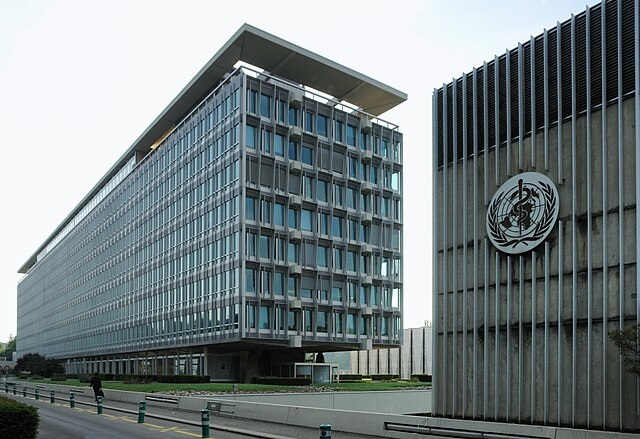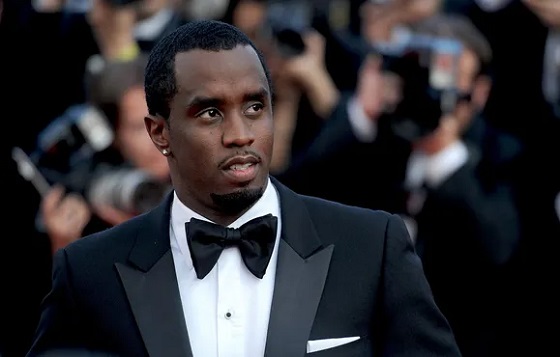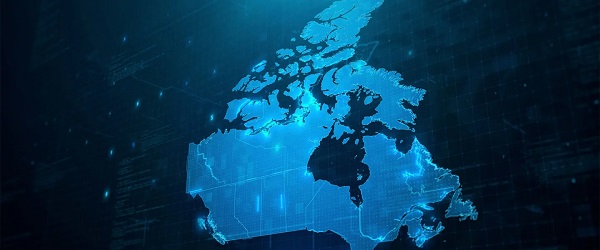Great Reset
The fundamental crisis with the WHO’s new international pandemic agreement

The WHO’s Managerial Gambit
From the Brownstone Institute
BY
The WHO is now proposing a new international pandemic agreement and amendments to the International Health Regulations. These proposals will make next time worse. Not because they override sovereignty, but because they will protect domestic authorities from responsibility. States will still have their powers. The WHO plan will shield them from the scrutiny of their own people.
On Friday, Bret Weinstein warned of impending tyranny from the World Health Organization. “We are in the middle of a coup,” the evolutionary biologist and podcaster told Tucker Carlson on X. The WHO’s new pandemic management regime will eliminate sovereignty, Weinstein said, and allow it to override national constitutions.
He’s right about tyranny and coups. But not about sovereignty or constitutions.
Technocrats learned a lot from Covid. Not how to avoid policy mistakes, but how to exercise control. Public authorities discovered that they could tell people what to do. They locked people down, closed their businesses, made them wear masks, and herded them to vaccination clinics. In some countries, people endured the most extreme restrictions on civil liberties in peacetime history.
The WHO is now proposing a new international pandemic agreement and amendments to the International Health Regulations. These proposals will make next time worse. Not because they override sovereignty, but because they will protect domestic authorities from responsibility. States will still have their powers. The WHO plan will shield them from the scrutiny of their own people.
Under the proposals, the WHO will become the directing mind and will of global health. It will have authority to declare public health emergencies. National governments will promise to do as the WHO directs. Countries will “undertake to follow WHO’s recommendations.” WHO measures “shall be initiated and completed without delay by all State Parties…[who] shall also take measures to ensure Non-State Actors [private citizens and domestic businesses] operating in their respective territories comply with such measures.” Lockdowns, quarantine, vaccines, surveillance, travel restrictions, and more will be on the table.
That sounds like a loss of sovereignty, but it is not. Sovereign states have exclusive jurisdiction in their own territory. WHO recommendations cannot be directly enforced in American courts. Sovereign nations can agree to follow the authority of international organizations. They can undertake to tie their own hands and to fashion their domestic laws accordingly.
The WHO proposals are a shell game. The scheme will provide cover to domestic public health authorities. Power will be ubiquitous but no one will be accountable. Citizens will lack control over the governance of their countries, as they already do. The danger that confronts us is still our own sprawling discretionary administrative state, soon to be boosted and camouflaged by an unaccountable international bureaucracy.
When countries make treaties, they make promises to each other. International law may regard those promises as “binding.” But they are not binding in the same sense as a domestic contract. International law is a different animal from domestic law. In Anglo-American countries, the two legal systems are distinct.
International courts cannot enforce treaty promises against unwilling parties in the same way that a domestic court can enforce contractual promises. International law is formalized international politics. Countries make promises to each other when it is in their political interests to do so. They keep those promises on the same criteria. When they don’t, political consequences sometimes follow. Formal legal consequences rarely do.
Nevertheless, the idea is to persuade the public that their governments must obey the WHO. Binding recommendations legitimize the heavy hands of domestic governments. Local officials will be able to justify restrictions by citing global duties. They will say that WHO directives leave them no choice. “The WHO has called for lockdowns, so we must order you to stay in your home. Sorry, but it’s not our call.”
During Covid, authorities tried to censor dissenting views. Despite their best efforts, skeptics managed to speak out. They offered alternative explanations in podcasts, videos, declarations, research papers, columns, and tweets. For many people, they were the source of sanity and truth. But next time things may be different. Under the new pandemic regime, countries will commit to censoring “false, misleading, misinformation or disinformation.”
As Weinstein put it, “Something is quietly moving just out of sight, in order that we will not have access to these tools the next time we face a serious emergency. … What [the WHO] wants are the measures that would have allowed them to silence the podcasters, to mandate various things internationally in a way that would prevent the emergence of a control group that would allow us to see harms clearly.”
The WHO documents will not override constitutions in Anglo-American countries. In the United States, the First Amendment will still apply. But the meaning of constitutions is not static. International norms can influence how courts read and apply constitutional provisions. Courts can take account of developing international standards and customary international law. The WHO proposals would not replace or define the meaning of constitutional rights. But they would not be irrelevant either.
The WHO is not undermining democracy. Countries have done that over time by themselves. National governments must approve the new plan, and any can opt out as they wish. Without their agreement, the WHO has no power to impose its dictates. Not all countries may be keen on all the details. The WHO proposals call for massive financial and technical transfers to developing countries. But climate change pacts do too. In the end rich countries embraced them anyway. They were keen to virtue-signal and justify their own climate boondoggles. Most can be expected to sign on to the WHO gambit too.
Countries who do so retain the sovereignty to change their minds. But leaving international regimes can be hellishly difficult. When the UK belonged to the European Union, it agreed to be subject to EU rules on all manner of things. It remained a sovereign country and could decide to get out from under the EU’s thumb. But Brexit threatened to tear the country apart. Having the legal authority to withdraw does not mean that a country is politically able to do so. Or that its elites are willing, even if that’s what its people want.
Numerous critics have made the same allegations as Weinstein, that the WHO’s regime will eliminate sovereignty and override constitutions. Brownstone writers have done so, for example, here and here. These allegations are easy to dismiss. Tedros Adhanom Ghebreyesus, the Director-General of the WHO, has repeatedly said that no country will cede sovereignty to the WHO. Reuters, the Associated Press, and other mainstream news outlets have done “fact checks” to debunk the claim. Saying that the WHO will steal sovereignty allows critics to be discredited as conspiracy theorists. It distracts from the game that is afoot.
The WHO proposals will protect power from accountability. National governments will be in on the plan. The people are the problem they seek to manage. The new regime will not override sovereignty but that is small comfort. Sovereignty provides no protection from your own authoritarian state.
Censorship Industrial Complex
Global media alliance colluded with foreign nations to crush free speech in America: House report

From LifeSiteNews
By Dan Frieth
The now-defunct ad coalition GARM shared insider data and urged boycotts of Twitter to punish non-compliance with its ‘harmful content’ standards, a US House Judiciary report shows.
A new report from the U.S. House Judiciary Committee has shed light on what it describes as an alarming collaboration between powerful corporations and foreign governments aimed at suppressing lawful American speech.
The investigation focuses on the Global Alliance for Responsible Media (GARM), an initiative founded in 2019 by the World Federation of Advertisers (WFA), which the committee accuses of acting as a censorship cartel.
According to the report, GARM, whose members control about 90 percent of global advertising spending, exploited its market dominance to pressure platforms like Twitter (now X) into compliance with its restrictive content policies.
A copy of the report can be found HERE.
The committee highlighted how GARM sought to “effectively reduce the availability and monetization” of content it deemed harmful, regardless of public demand for free expression.
Documents obtained by the committee reveal direct coordination between GARM and foreign regulators, including the European Commission and Australia’s eSafety commissioner.
In one exchange, a European bureaucrat encouraged advertisers to leverage their influence to “push Twitter to deliver on GARM asks.”

Similarly, Australia’s eSafety Commissioner Julie Inman Grant praised GARM’s “significant collective power in helping to hold the platforms to account” and sought updates to “take into account in our engagement and regulatory decisions.”

Robert Rakowitz, GARM’s co-founder and initiative lead, expressed a chilling goal in private correspondence, stating that silencing President Donald Trump was his “main thing” and likening the president’s speech to a “contagion” he aimed to contain “to protect infection overall.”

The report outlines how GARM distributed previously unavailable non-public information about Twitter’s adherence to its standards, fully aware this would prompt advertisers to boycott the platform if it failed to conform. According to the House report, Rakowitz admitted that this information sharing was designed to encourage members not to advertise on Twitter.
He went as far as to draft statements urging GARM members to halt advertising on the platform, telling colleagues he had gone “as close as possible” to saying Twitter “is unsafe, cease and desist.”
Despite the widespread impact of GARM’s actions, including what the committee describes as coerced “concessions” from platforms, internal polling circulated within GARM showed that “66 percent of American consumers valued free expression over protection from harmful content.”
Still, GARM pressed ahead with efforts to “eliminate all categories of harmful content in the fastest possible timing,” ignoring consumer preferences.
Even after GARM dissolved in 2024 amid legal challenges, similar efforts persisted.
A new coalition led by Dentsu and The 614 Group briefly attempted to revive GARM’s mission before disbanding under scrutiny. Gerry D’Angelo, a former GARM leader, reflected on the initiative’s overreach, stating, “Did we go too far in those first rounds of exclusionary restrictions? I would say yes.”
The Judiciary Committee warns that despite GARM’s downfall, the threat of collusion to stifle free expression remains.
It pledged to continue oversight to defend “the fundamental principles” of the Constitution and ensure that markets, not coordinated censorship efforts, shape the flow of information in the digital age.
Reprinted with permission from Reclaim The Net.
Business
World Economic Forum Aims to Repair Relations with Schwab

The whistleblower has always been anonymous, and it remains very suspicious that the very organization he created would turn on him after receiving an anonymous letter that they admitted may not have been credible.
World Economic Forum founder Klaus Schwab stepped down from his chairman position at the organization on April 20, 2025, amid accusations of fraud. Our computer had forecast that the WEF would enter a declining trend with the 2024 ECM turning point. This staged coup happened about 37 years after the first Davos meeting (8.6 x 4.3). From our model’s perspective, this was right on time. Now, Schwab and the WEF are working to repair ties.
An anonymous whistleblower claimed that Klaus Schwab and his wife collaborated with USAID to steal tens of millions in funding. The whistleblower has always been anonymous, and it remains very suspicious that the very organization he created would turn on him after receiving an anonymous letter that they admitted may not have been credible. Something like this would never be acceptable in any court of law, especially if it’s anonymous. It would be the worst or the worst hearsay, where you cannot even point to who made the allegation.
Back in April, the WEF said its board unanimously supported the decision to initiate an independent investigation “following a whistleblower letter containing allegations against former Chairman Klaus Schwab. This decision was made after consultation with external legal counsel.”
Now, the WEF is attempting to repair its relationship with its founder ahead of the next Davos meeting. Bloomberg reported that the WEF would like to “normalize their relationship [with Klaus Schwab] in order to safeguard the forum and the legacy of the founder.”
Peter Brabeck-Letmathe has replaced Schwab for the time being, but is less of a commanding force. Schwab’s sudden departure has caused instability in the organization and its ongoing mission. Board members are concerned that support for the organization will begin to decline as this situation remains unresolved.
The World Economic Forum’s annual revenue in 2024 was 440 million francs ($543 million), with the majority of proceeds coming from member companies and fees. Yet, the number of people registered to attend the 2025 Davos event is on par if not slightly exceeding the number of participants from the year prior.
Schwab’s departure has damaged the Davos brand. There is a possibility that the organization is attempted to rebrand after Agenda 2030 failed. The WEF attempted to move away from its zero tolerance stance on ESG initiatives after they became widely unpopular among the big industry players and shifting governments. The brand has attempted to integrate the importance of digital transformation and AI to remain relevant as the tech gurus grow in power and popularity. Those who are familiar with Klaus Schwab know the phrase, “You will own nothing and be happy.” These words have been widely unpopular and caused a type of sinister chaos to surround the brand that was once respected as the high-brow institution of globalist elites.
European Central Bank President Christine Lagarde was slated to replace Schwab in 2027 when her term ends, and all reports claimed that he was prepared to remain in the chairman role for an additional two years to ensure Lagarde could take his place. What changed seemingly overnight that would cause the organization to discard Schwab before he was due to retire?
Schwab denies any misconduct and filed lawsuits against the whistleblowers, calling the accusations “calumnious” and “unfounded.” He believes “character assassination” was the premise of the claims.
I am no fan of Klaus Schwab, as everyone knows. I disagree with his theories from start to finish. Nevertheless, something doesn’t smell right here. This appears to be an internal coup, perhaps to distract attention from the question of alleged funds for the WEF from USAID, or to try to salvage the failed Agenda 2030. Perhaps they will claim that no misconduct had occurred since DOGE did not raise concerns or there is a possibility that those behind the internal coup are concerned that Schwab’s counter lawsuit could uncover new corruption. The investigation into Schwab has not concluded, but after only three months, the WEF would like to wrap it up. It appears that the WEF does not want to welcome Schwab back; rather, they would like to ensure an amicable resolution to maintain both the brand’s reputation as well as the founder’s.
-

 MxM News2 days ago
MxM News2 days agoDiddy found not guilty of trafficking, faces prison on lesser charge
-

 Alberta2 days ago
Alberta2 days agoAlberta government records $8.3 billion surplus—but the good times may soon end
-

 Also Interesting2 days ago
Also Interesting2 days agoEndorphina Slots: High-Quality Games Now at Zoome Casino Canada
-

 Bruce Dowbiggin2 days ago
Bruce Dowbiggin2 days agoCanada Day 2025: It’s Time For Boomers To Let The Kids Lead
-

 Canadian Energy Centre2 days ago
Canadian Energy Centre2 days agoAlberta oil sands legacy tailings down 40 per cent since 2015
-

 Business2 days ago
Business2 days agoPrairie provinces and Newfoundland and Labrador see largest increases in size of government
-

 Economy2 days ago
Economy2 days agoTrump opens door to Iranian oil exports
-

 Agriculture2 days ago
Agriculture2 days agoCanada’s supply management system is failing consumers











